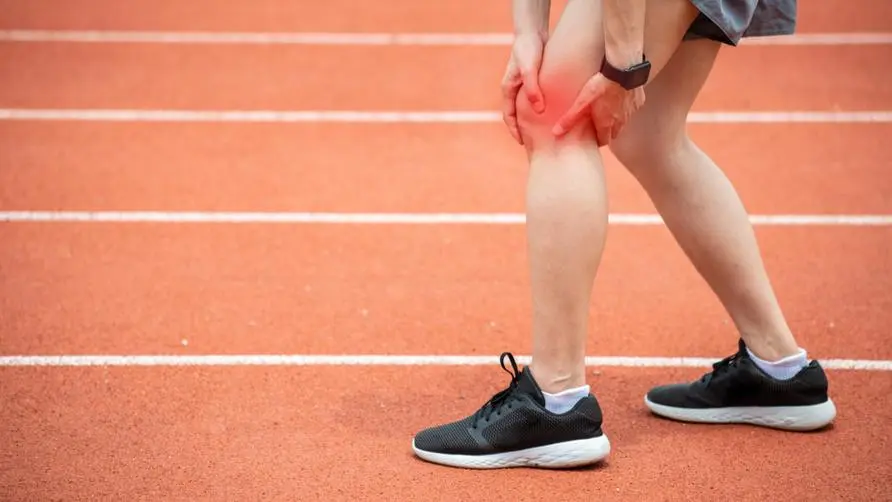Can more exercise reduce brain shrinkage? Study: Linked to lower BMI, insulin resistance

Older people who exercise more have better brain metabolism of glucose.
In addition to helping the body to be healthy, exercise can also protect brain cells in the brain? A study published online in the American neurological journal “Neurology” points out that people who exercise more can not only reduce the shrinkage of brain volume, but also increase the glucose metabolism capacity in the brain. This phenomenon coincides with Alzheimer’s disease. Opposite brain features of mutism may be an underlying reason for how exercise reduces cognitive dysfunction.
This study recruited 134 elderly people with an average age of 69 and no memory impairment to participate. Participants filled out questionnaires about their exercise over the past year and underwent brain MRI scans, as well as measurements of various physiological indicators such as BMI, insulin levels, blood cholesterol, and blood pressure.
Brain volume proves exercise helps, positively correlated with BMI insulin
The research team claimed that the gray matter volume of the brains of the people who exercised the most (550,000 cubic millimeters) was higher than that of the people who exercised the least (540,000 cubic millimeters), and the contrast in brain volume was also found in the brains of the two groups, only affected by Aziz. The same changes are seen in areas of the brain affected by Alzheimer’s disease.
However, in this study, it was found that the amount of exercise was not related to the size of amyloid plaques in the brain, which is the most obvious characteristic of the brains of people with Alzheimer’s disease.
Study author Géraldine Poisnel, Ph.D., of the Inserm Research Center, points out that additional research must be conducted to dissect the mechanism of the influence between exercise and the brain’s nerves. However, it can be inferred from current observational studies that maintaining a lower BMI by maintaining exercise habits can help reduce insulin metabolism problems common in the aging process, thereby helping brain health.
In addition, older adults who exercise regularly seem to have positive cardiovascular benefits by maintaining a healthier BMI and less insulin resistance, making the brain structure less susceptible to physical degeneration to some extent. The research team claims that the relationship between exercise volume and the volume of gray matter in the brain, as well as the obvious correlation between insulin and BMI, is enough to reflect how exercise affects brain health and how the general public sets life guidelines to delay aging.
Regular exercise improves cortical thickness and delays aging by 3 years
Another study published in “JAMA Network” on 1,443 elderly people also found that people who regularly exercise regularly have an average increase in the thickness of the brain’s cortex by 13%, which is equivalent to delaying natural aging by 3-4 years. Minimum levels of regular exercise also have positive cortical benefits compared to older adults who do no exercise at all.
The study also claims that more physical activity and regular exercise are associated with healthier and larger brain capacity in older adults.
Exercise has three benefits for the brain: reducing insulin resistance and inflammatory response
Harvard Medical School pointed out that exercise can indirectly improve memory and thinking ability. The main mechanism is to reduce insulin resistance and the body’s inflammatory response, and promote the production of growth factors in the body. These chemicals can affect the brain to grow new blood vessels. Exercise also promotes richer blood flow to the brain, allowing individuals to obtain healthier brain cells.
Research in the “Journal of the American Geriatrics Society” further pointed out that “Tai Chi”, which is popular in the East, has the potential benefit of improving cognitive function, especially in the area of executive function, which is a part of the brain related to planning, working memory, Related to attention, problem solving, and verbal reasoning. The possible reason is that Tai Chi has a slow pace and concentrated movements, which require the use of learning ability and memorization of movement patterns during exercise.
Dr. McGinnis of Harvard Medical School suggests that exercise should be viewed as a lifestyle habit, just like a long-term prescription. Many studies have pointed out that it takes about 6 months for exercise to have effects such as improving cognitive function. It is recommended that the public be patient when first starting to exercise. It is best to continue exercising for life, so as to be able to do 150 minutes of moderate-intensity exercise per week, such as Walk briskly as a standard, and then gradually increase the intensity depending on the situation.
source:
Exercise can boost your memory and thinking skills
Further reading:





